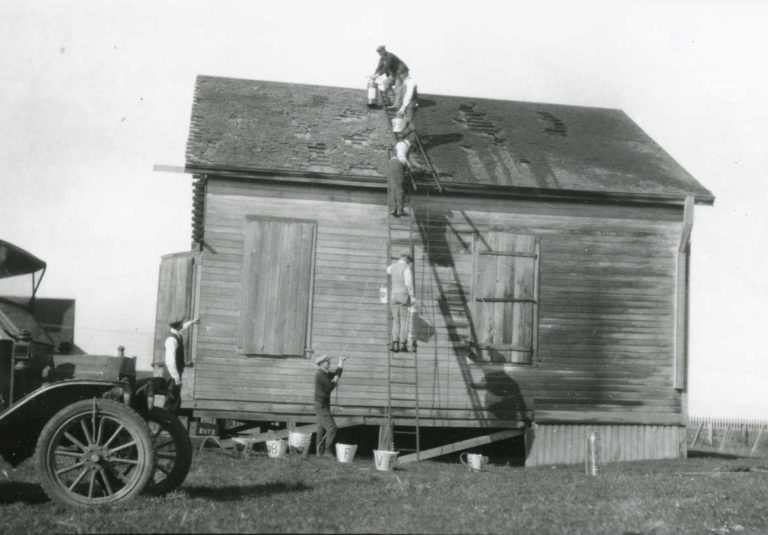
1897
1897
Richmond Fire Department is established.
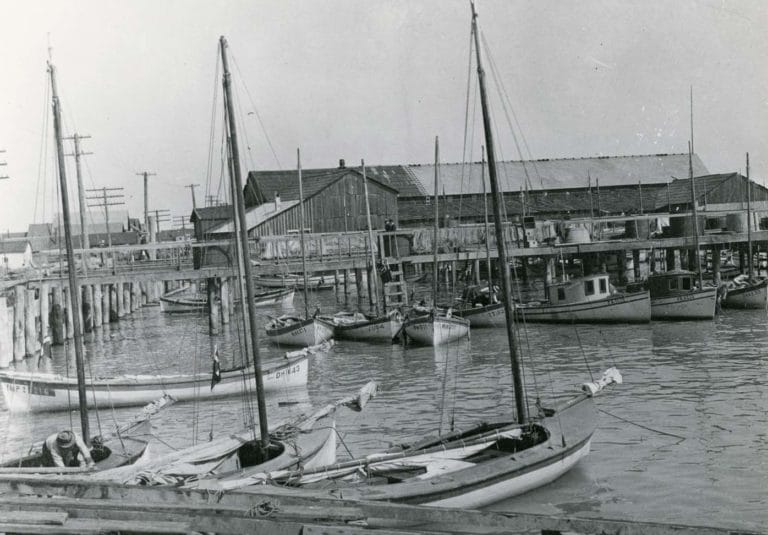
1912-1917
1912-1917
The Steveston Fire Department was created for the cannery town and fishing port of Steveston. The fishery also supported a significant boatbuilding and shipbuilding industry. At this time, the fire department had 24 volunteer firefighters on board and one full-time, paid fire chief.
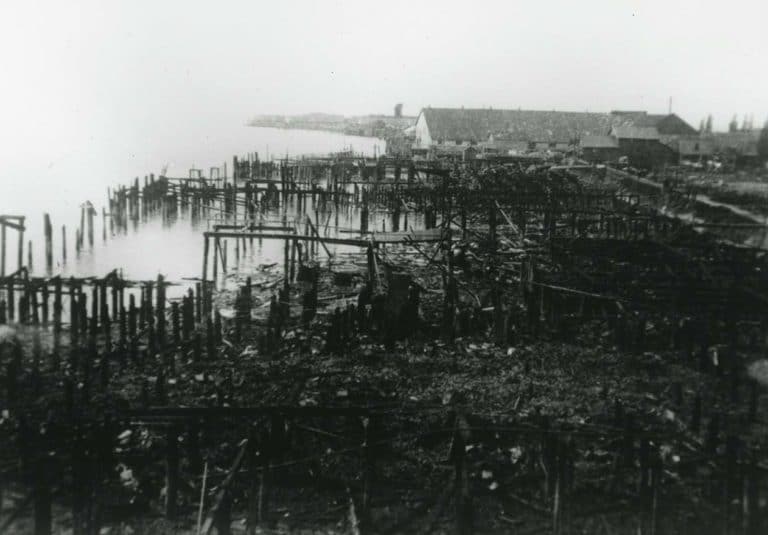
1918
1918
In the month of May, a fire was allegedly started in the cookhouse in Star Cannery in Steveston. The fire spread quickly due to strong winds, and owing to the fact that many canneries and surrounding housing were built with wood. The inferno destroyed most of the buildings between No. 1 Road and Third Avenue, as well as many buildings south of Moncton Street. It engulfed three canneries and three hotels, displacing about 600 Japanese, Chinese, and First Nations workers and their families. The total damage amounted to $500,000.
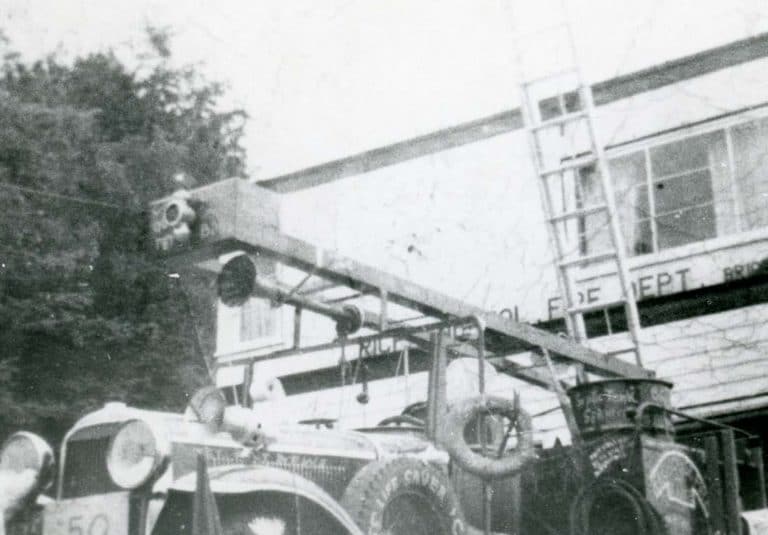
1922
1922
The Brighouse Volunteer Fire Department was created and received a $100 grant from the Municipal Council.
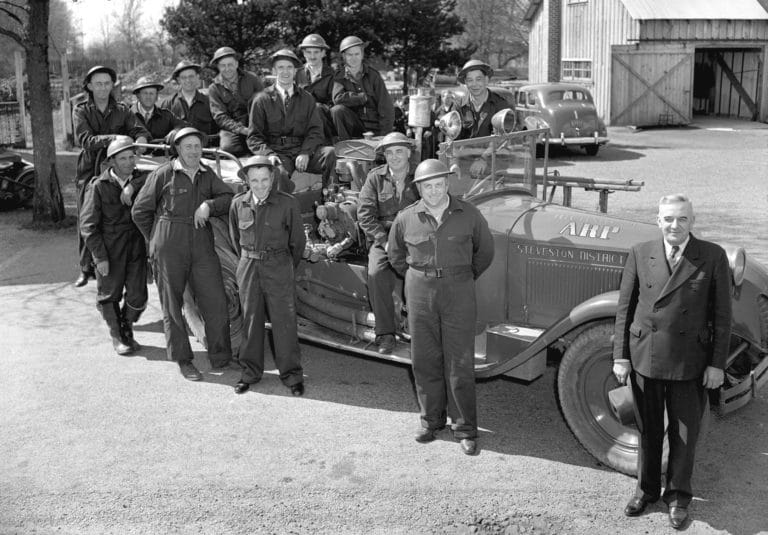
1924
1924
The Brighouse Volunteer Fire Department closed down due to the onset of World War II. Consequently, the fire department was transformed into the Air Raid Protection Unit (A.R.P.) to protect Canada’s west coast if World War II were to happen. Richmond was divided into 6 districts, each with its own fire brigade.
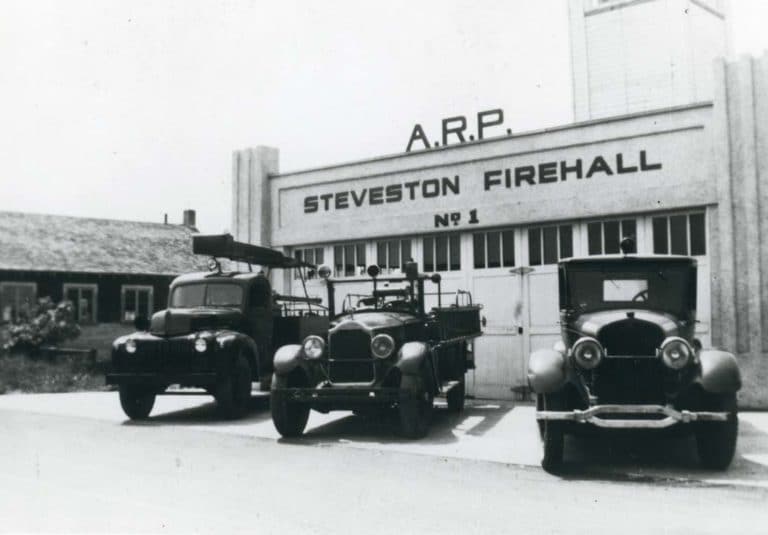
~1939
~1939
World War II began. Air Raid Protection (A.R.P.) protected Richmond’s Lulu Island.
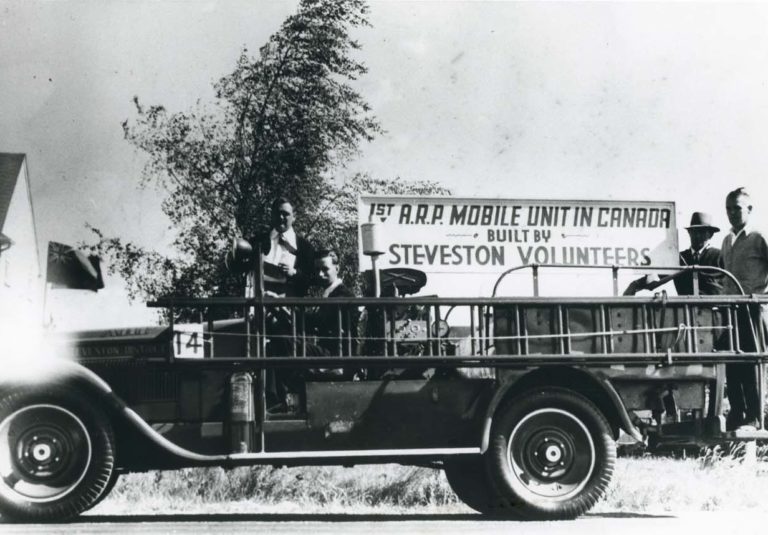
1942
1942
A team of 15 volunteer firefighters purchased a car chassis and transformed it into the first mobile Air Raid Precaution Unit in Canada.
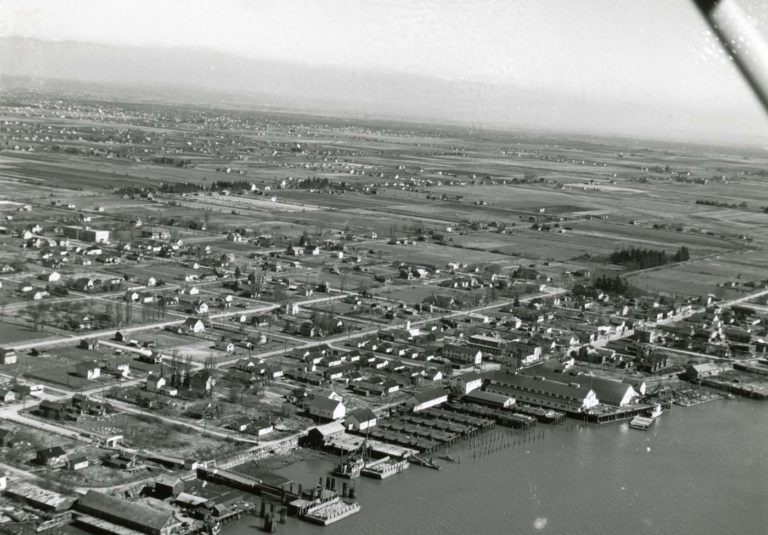
~1945
~1945
World War II ended. A.R.P. was disbanded and the Vancouver Fire Department was responsible for fire protection on the island.
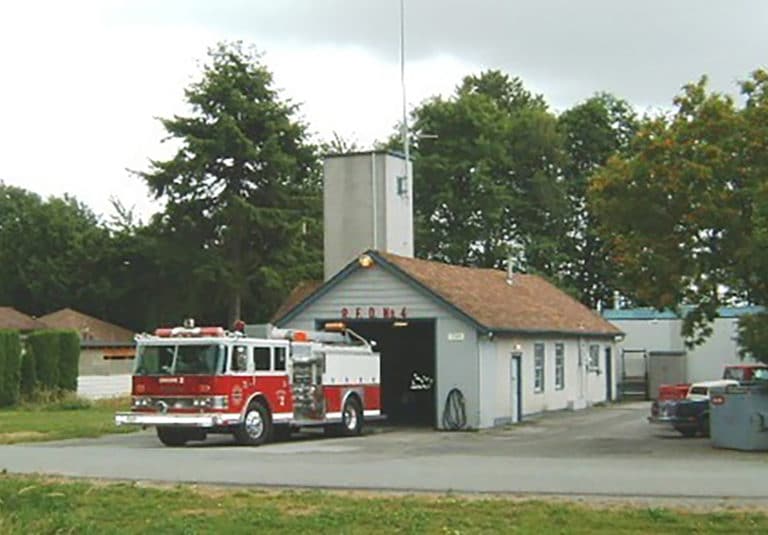
1947
1947
The construction of Burkeville Fire Hall #4 in Richmond was completed and actively in service. Address: 780 Lancaster Crescent, Richmond, B.C.
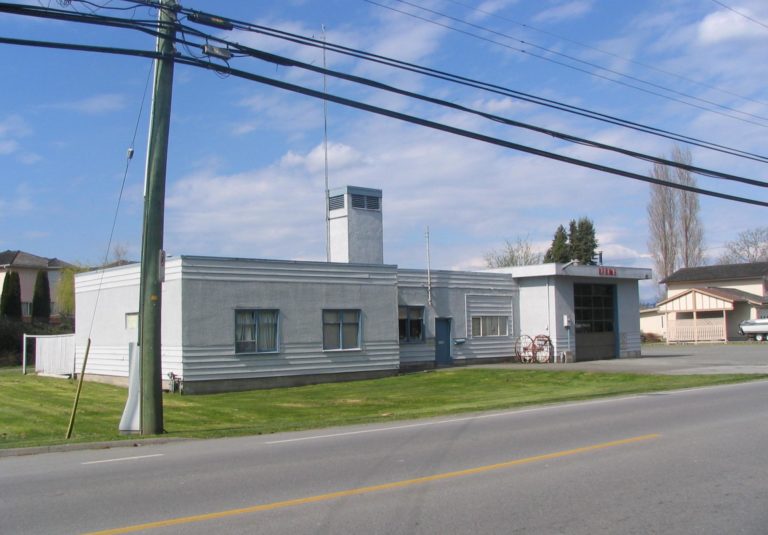
1947
1947
The construction of Hamilton Fire Hall #5 in Richmond was completed and in service. Address: 23031 Westminster Highway, Richmond, B.C.
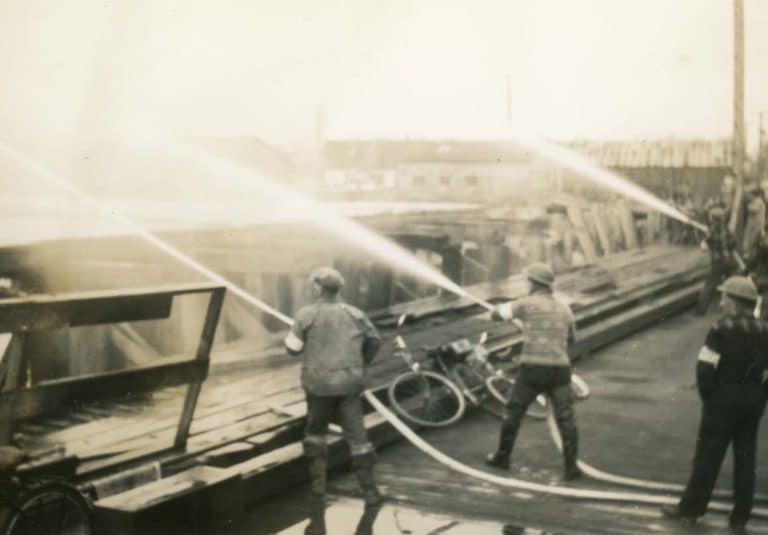
1951
1951
Firefighting and rescue services in the Richmond area were provided free of charge until 1951, when a paid staff member was hired to work out of the Brighouse firehall. Unpaid men were represented by the Volunteer Fire-Fighters Association and the Central Fire Committee.
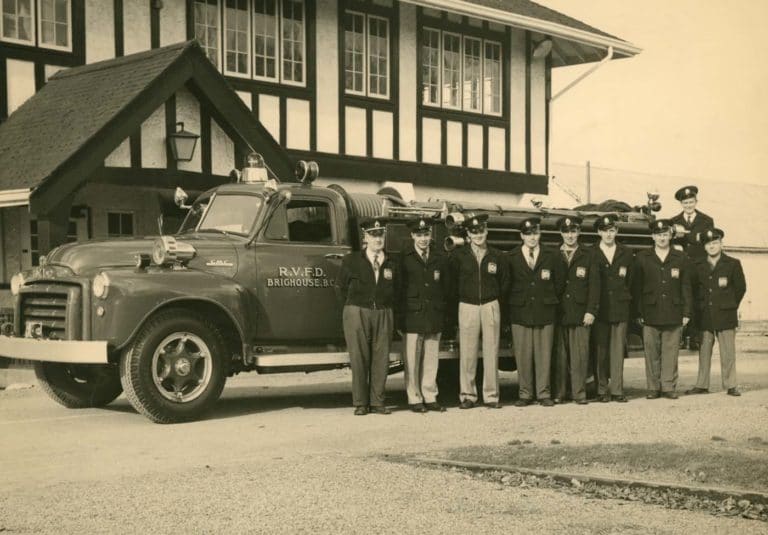
1951-1969
1951-1969
After the first paid firefighter was brought aboard, there was an increase in paid firemen, prompting the development of Local 1286 (The Fire-Fighters Union), which was organized within the International Association of Fire-Fighters. Volunteers continued to support the salaried firefighters until 1969, after which volunteer brigades were gradually phased out.
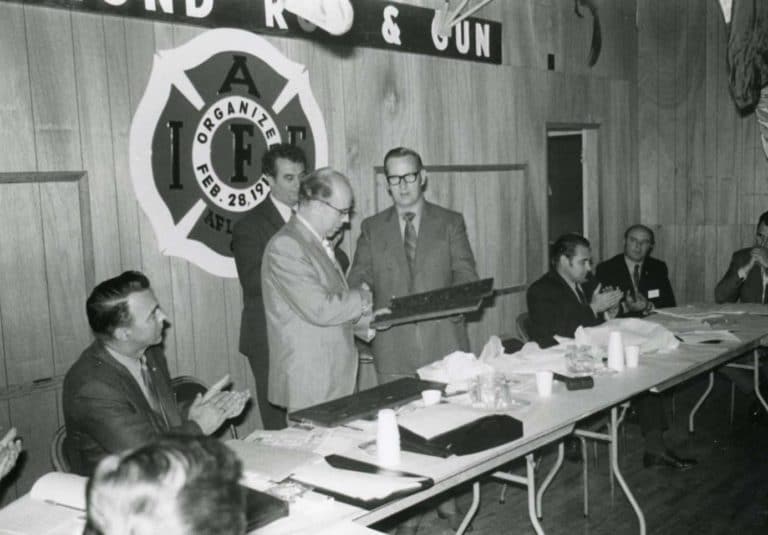
1957
1957
Richmond firefighters affiliated with the International Association of Firefighters (IAFF) acquired their Local 1286 designation.
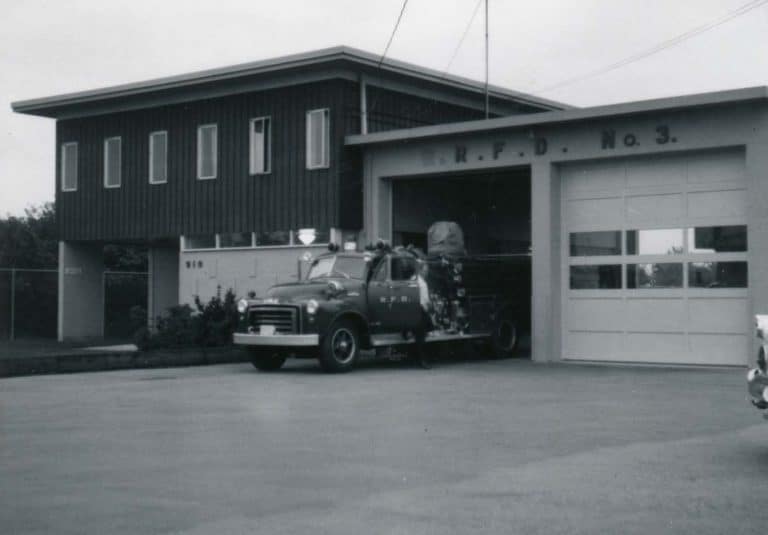
1958
1958
Bridgeport Fire Hall #3 was constructed and in service. Address: 9100 Bridgeport Road, Richmond, B.C.
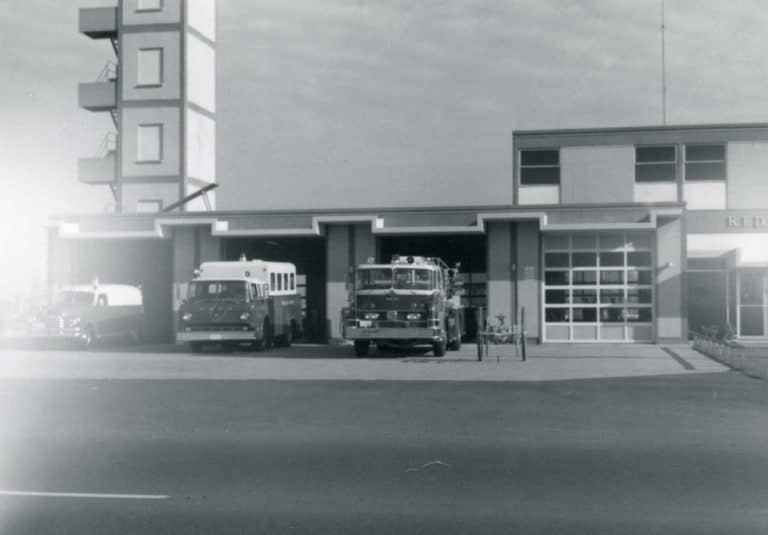
1962
1962
Brighouse Fire Hall #1 construction completed and in service. Address: 6960 Gilbert Road, Richmond, B.C.
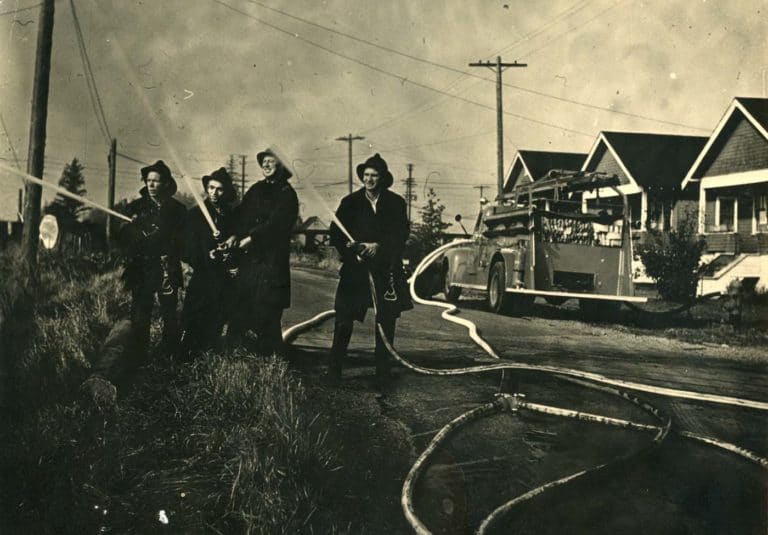
1967-1969
1967
37 salaried firefighters were employed. Each hall, with the exception of East Richmond, had a firefighter on duty 24 hours a day.
1969
Majority of the volunteer brigades had been phased out and 100 salaried firefighters were servicing the Richmond communities. The Sea Island Volunteer Fire Brigade closed, with Brighouse and Bridgeport following soon after.
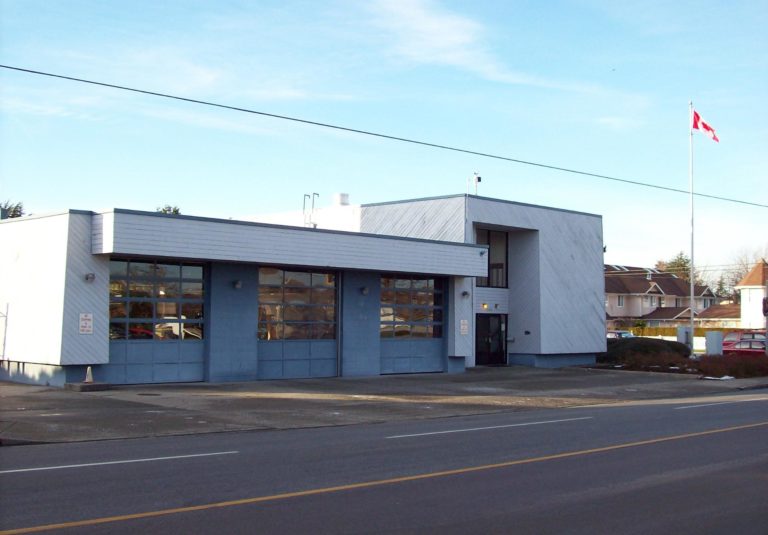
1972-1973
1972
Steveston Fire Hall #2 construction completed and in service. Address: 11011 No. 2 Road, Richmond, B.C. Steveston Volunteer Fire Brigade closes.
1973
The last volunteer fire brigade, East Richmond, closed down and all of Richmond’s firefighters were now full-time paid positions.
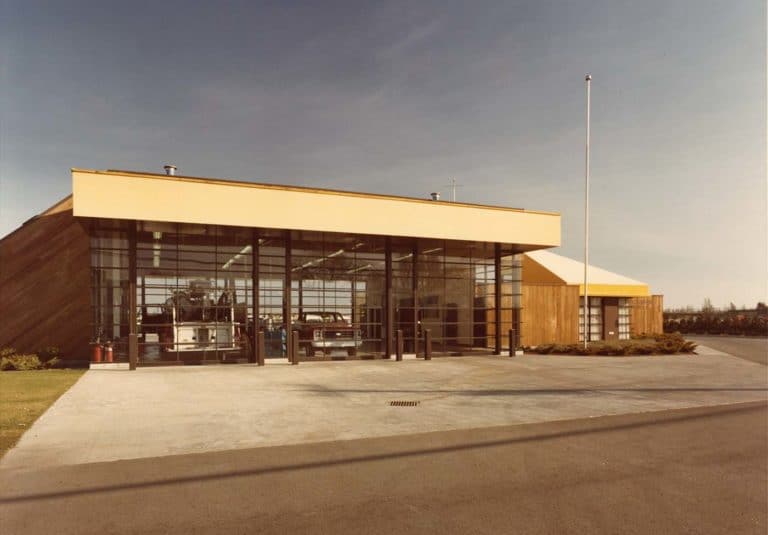
1976
1976
Shellmont Fire Hall #6 construction completed and in service. Address: 9400 No. 4 Road, Richmond, B.C.
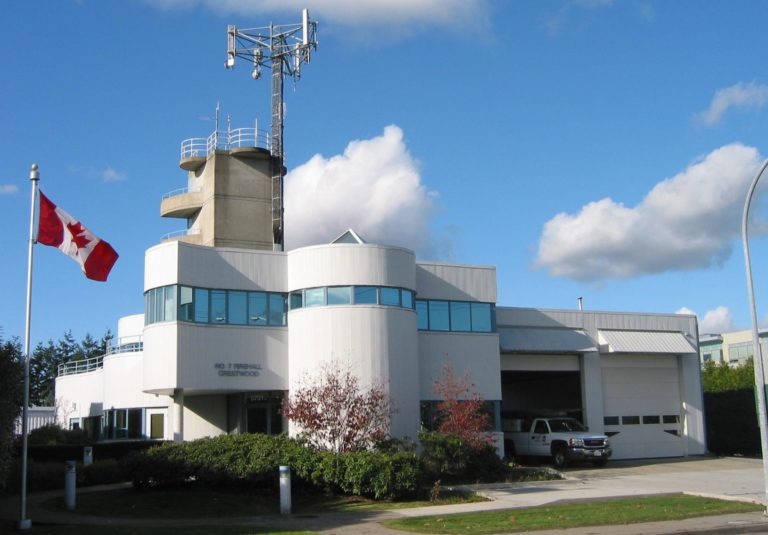
1992-1997
1992
Crestwood Fire Hall #7 construction completed and in service. Address: 5731 No. 6 Road, Richmond, B.C.
1995
Richmond Fire-Rescue amalgamated with the Vancouver International Airport Authority (YVR) firefighters to protect the Richmond community as one unit under new contract agreements.
1997
Richmond Fire-Rescue’s Local 1286 commemorates 100 years of service.
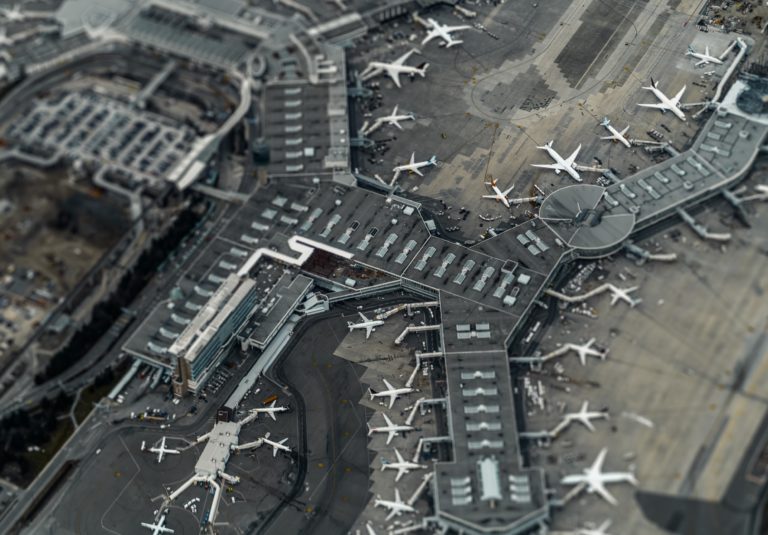
2001-2004
2001
During the attacks at the U.S. World Trade Centres, Richmond firefighters were dispatched to the Vancouver International Airport Authority (YVR) to stand by for emergency response.
2004
Vancouver International Airport Authority (YVR) altered its emergency response from municipal to federal, therefore separating its services from Richmond Fire-Rescue. However, Richmond Fire-Rescue continues to respond and provide support for emergencies at YVR.
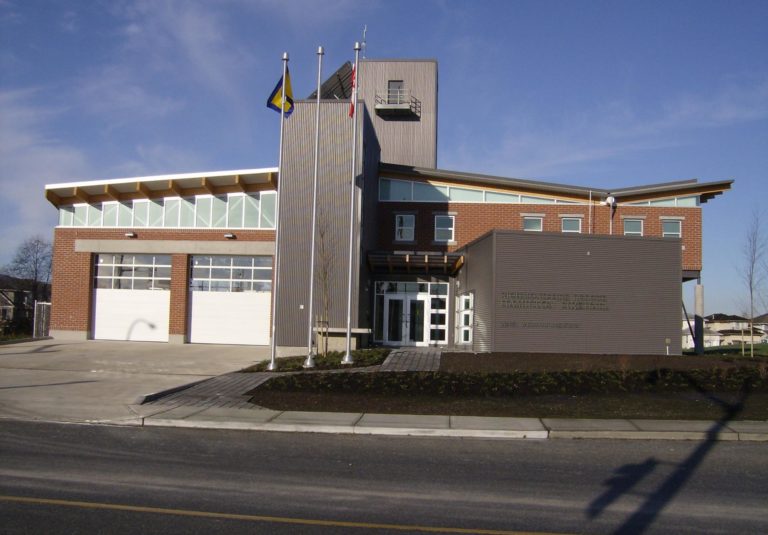
2007
2007
Hamilton Fire Hall #5 construction completed and in service. The new fire hall moved to 22451 Westminster Highway, Richmond, B.C. Designed for post-disaster support, the structure is constructed using a concrete slab on structural fill, compacted to new 100-year floodplain elevation. The facility achieved its sustainable “Green” initiative designed to meet Leadership in Energy and Environmental Design (LEED) Gold standards.
For more information on Hamilton Fire Hall #5, please visit our locations page
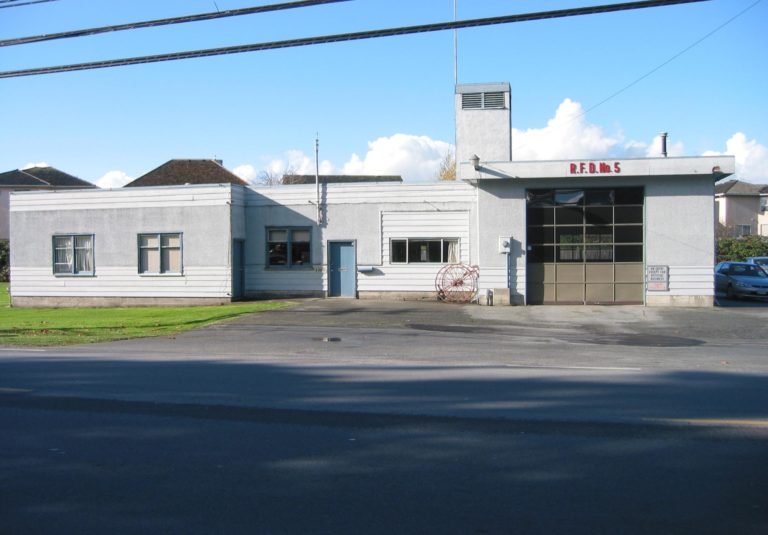
2007
2007
Burkeville Fire Hall #4 and Hamilton Fire Hall #5, both built in 1947, are demolished.
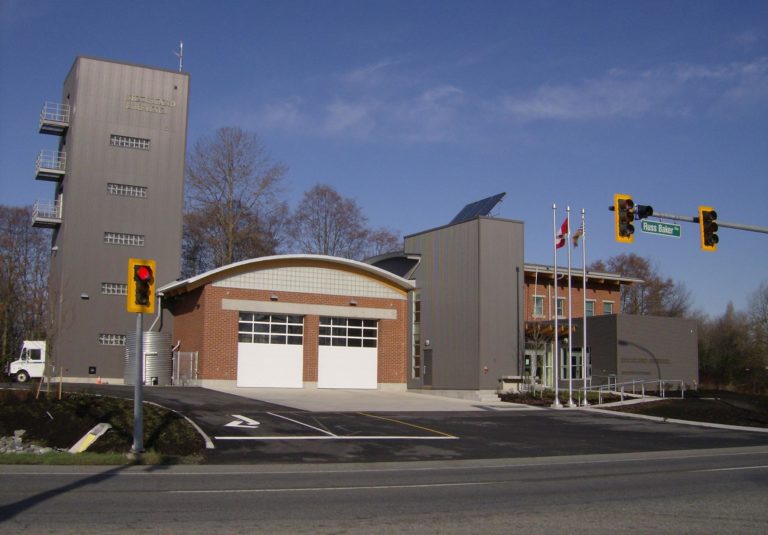
2007
2007
Sea Island Fire Hall #4 construction completed and in service, which replaced Burkeville Fire Hall #4. New address: 3911 Russ Baker Way, Richmond, B.C. This fire hall was also built for post-disaster support and features a sustainable “Green” initiative designed to meet Leadership in Energy and Environmental Design (LEED) Silver standards.
For more information on Sea Island Fire Hall #4, please visit our locations page
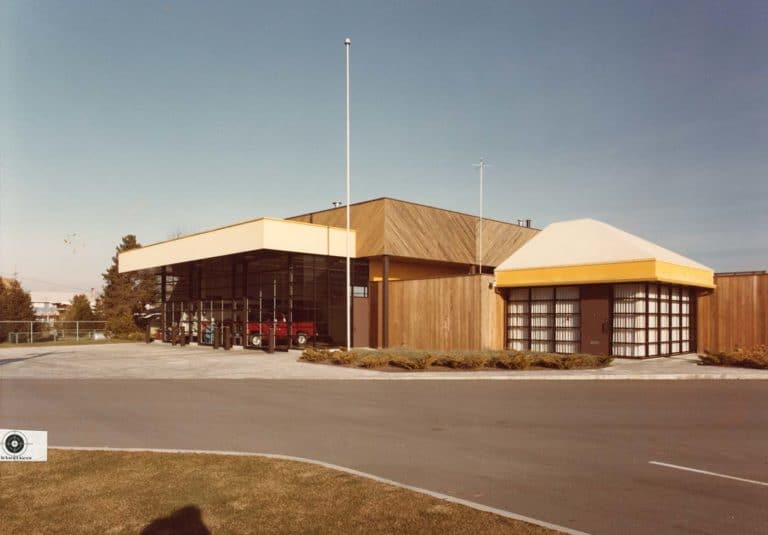
2008
2008
Shellmont Fire Hall #6, built in 1976, underwent extensive renovations to bring it up to post-disaster response readiness
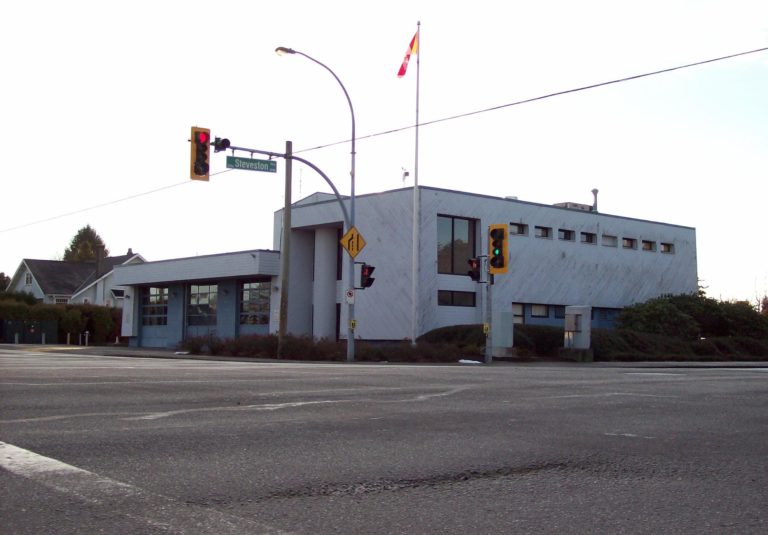
2009
2009
Steveston Fire Hall #2, built in 1972, was demolished for new hall to be built on site.
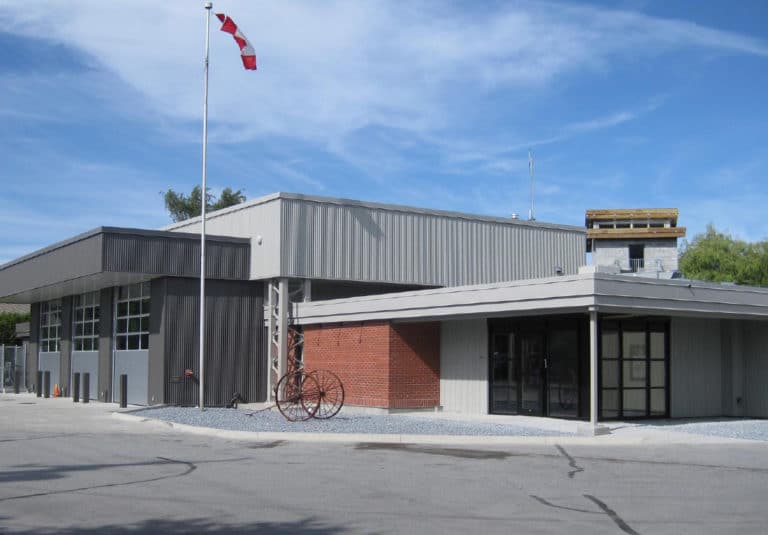
2009
2009
Shellmont Fire Hall #6 renovations completed and in service. The building was seismically upgraded so that in the event of an earthquake, Richmond Fire-Rescue is able to provide emergency services.
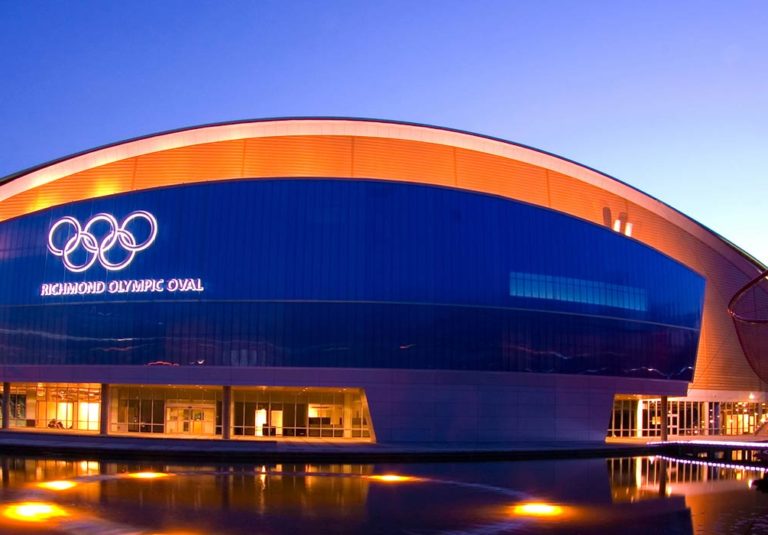
2010
2010
Richmond hosts the Olympic Games. Richmond Fire-Rescue temporarily expanded service for fire and rescue during the games.
(Image Source: Richmond Olympic Oval)
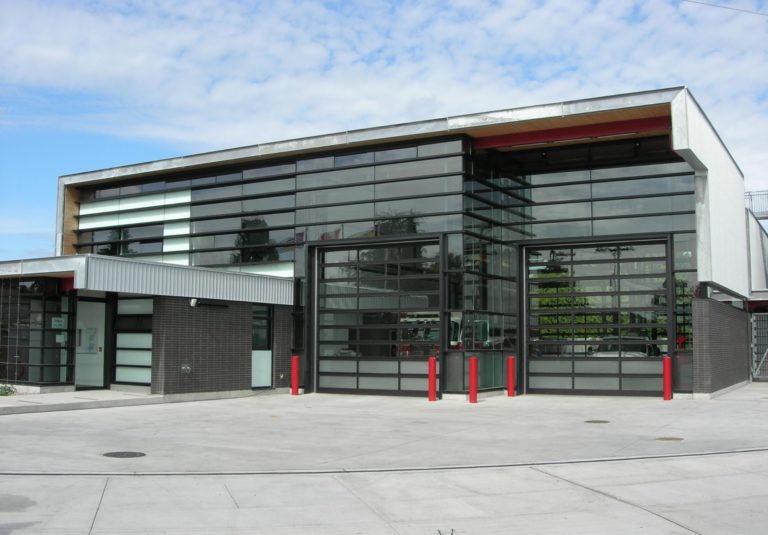
2011
2011
Steveston Fire Hall #2 construction completed and in service. This facility is designed to meet Leadership in Energy and Environmental Design (LEED) Gold standards.
For more information on Steveston Fire Hall #2, please visit our locations page
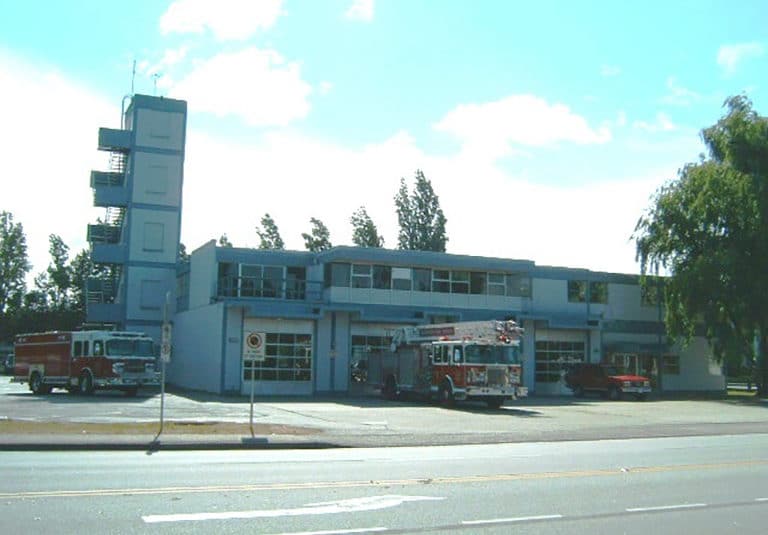
2015
2015
Brighouse Fire Hall #1, built in 1962, was demolished for a new hall to be built on site. It was temporarily moved to 6931 Granville Avenue, Richmond, B.C.
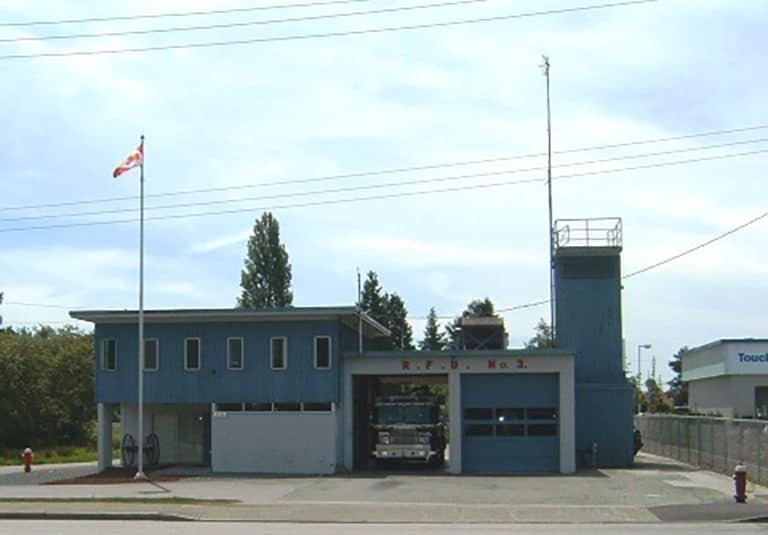
2017
2017
Bridgeport Fire Hall #3, built in 1958, was closed.
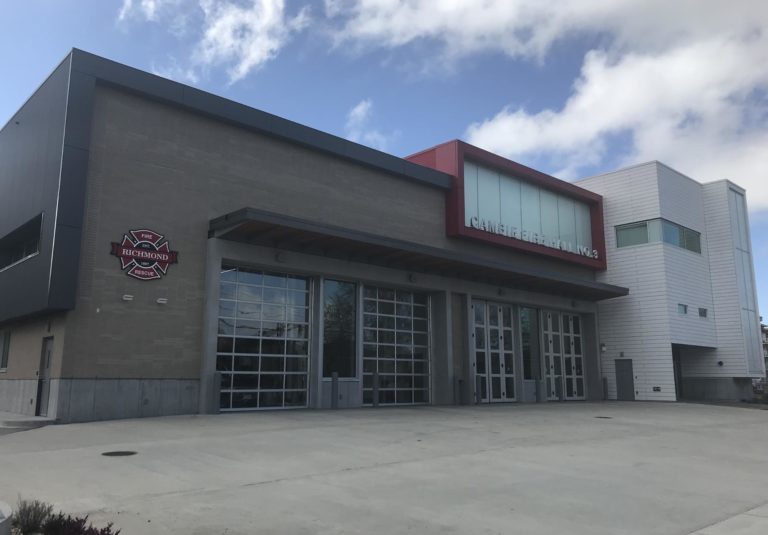
2017
2017
The construction of Cambie Fire Hall #3 was completed and in service, which replaced Bridgeport Fire Hall #3. New address: 9680 Cambie Road, Richmond, B.C. It is the first facility in a major B.C. city that has both Fire-Rescue and Ambulance services in one building. The 26,000 square feet facility is sustainably designed to meet Leadership in Energy and Environmental Design (LEED) Gold standards.
For more information on Cambie Fire Hall #3, please visit our locations page
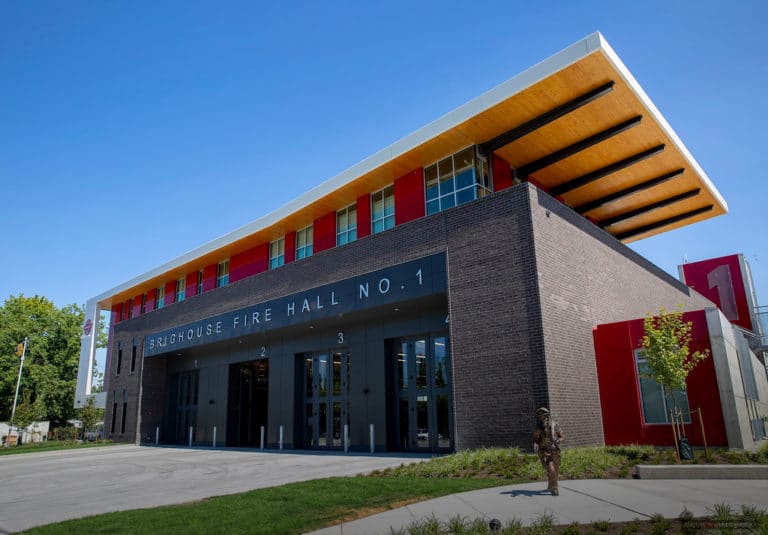
2018-Present
2018
Brighouse Fire Hall #1 construction completed and in service. The design of the new fire hall meets strict operational requirements to fulfill the needs of our growing community. The 25,240 square foot facility is post-disaster rated to ensure it will remain operable should a major seismic event occur. It is also sustainably designed to meet Leadership in Energy and Environmental Design (LEED) Gold standards.
For more information on Brighouse Fire Hall #1, please visit our locations page
At Present
The Richmond Fire Department has over 250 firefighters and serves 227,406 people in the community of Richmond.
